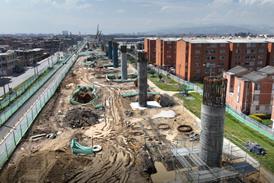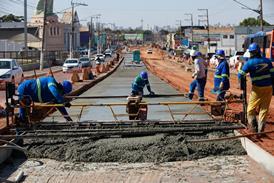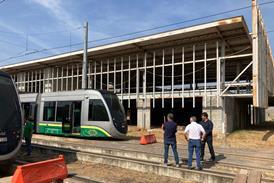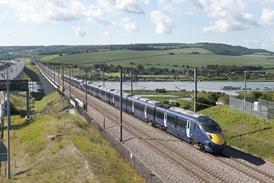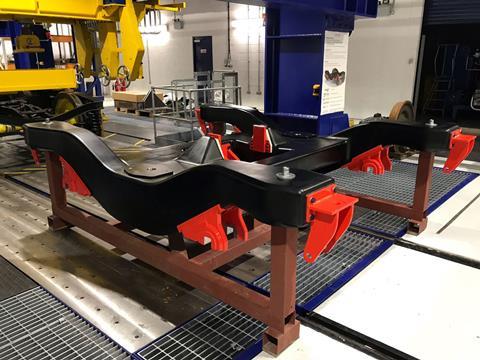
UK: A prototype passenger vehicle bogie made from recycled carbon fibre was unveiled at the Railway Industry Association’s Unlocking Innovation event at the University of Huddersfield on December 10.
The bogie is being developed through a two-year programme being undertaken by a consortium of fibre recycling company ELG Carbon Fibre, manufacturer Magma Structures, the University of Birmingham and the University of Huddersfield, with support from Alstom. The Rail Safety & Standards Board has provided £1·25m of funding.
The bogie is designed to be lighter than conventional bogies, reducing energy consumption as well as track wear and thus infrastructure maintenance costs by reducing vertical and transverse loads on the rails. An embedded monitoring system aims to improve reliability and operational availability.
‘Replacing steel with recycled carbon fibre to produce a rail bogie is a world first so it is a hugely exciting and rewarding project to be part of’, said Frazer Barnes, Managing Director of ELG Carbon Fibre. ‘We hope to make recycled carbon not only an attractive option for the rail industry in terms of weight reduction but also to eliminate waste and drive down cost.’
The bogie is to be tested on the Huddersfield Adhesion & Rolling contact Laboratory Dynamics rig.
‘There are significant potential benefits from adopting novel materials and construction methods in railway vehicle bogies’, said Professor Simon Iwnicki, Director of the Institute of Railway Research at the University of Huddersfield. ‘The reduction in mass results in energy savings but can also reduce track forces and improve dynamic performance. I hope that the tests on the CaFiBo bogie being carried out here at Huddersfield will help to encourage the railway industry to accept these new techniques.’

